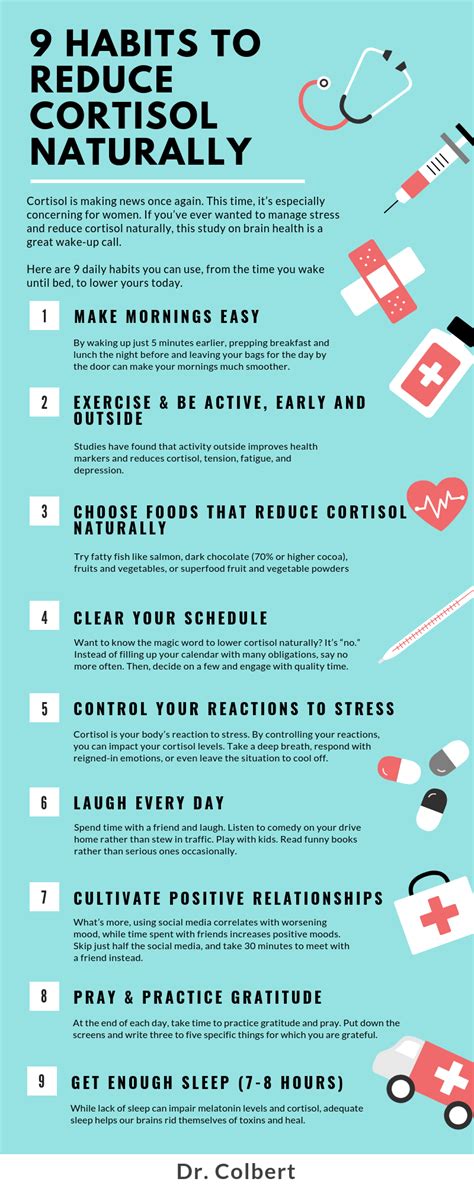How to Get Rid of High Cortisol: A Holistic Approach to Stress Management
High cortisol, often called the "stress hormone," can wreak havoc on your body and mind. Chronic elevation leads to a cascade of problems, including weight gain, sleep disturbances, weakened immunity, and increased risk of chronic diseases. But the good news is that you can lower your cortisol levels naturally. This guide provides actionable steps toward reclaiming your well-being.
Understanding Cortisol and its Impact
Before diving into solutions, let's understand what cortisol does and why high levels are problematic. Cortisol is crucial for regulating various bodily functions, including:
- Metabolism: Influences blood sugar levels and energy production.
- Immune response: Plays a role in inflammation and immune cell function.
- Blood pressure: Helps maintain healthy blood pressure.
However, chronically high cortisol, often stemming from prolonged stress, disrupts these processes, leading to:
- Weight gain: Particularly around the abdomen.
- Insomnia: Difficulty falling asleep and staying asleep.
- Anxiety and depression: Contributing to mood disorders.
- Weakened immune system: Making you more susceptible to illness.
- High blood pressure: Increasing the risk of cardiovascular disease.
- Digestive problems: Irritable bowel syndrome and other gastrointestinal issues.
Natural Ways to Lower Cortisol Levels
The key to managing high cortisol lies in adopting a holistic lifestyle encompassing several strategies:
1. Stress Management Techniques
This is paramount. High cortisol is often a direct result of chronic stress. Explore these techniques:
- Mindfulness and Meditation: Regular practice calms the nervous system. Even 10-15 minutes daily can make a difference.
- Deep Breathing Exercises: Simple techniques like box breathing can quickly lower cortisol.
- Yoga and Tai Chi: These mind-body practices combine physical movement with mental focus, promoting relaxation.
- Spending Time in Nature: Studies show nature reduces stress hormones.
2. Dietary Changes
Your diet significantly impacts cortisol levels.
- Prioritize Whole Foods: Focus on fruits, vegetables, lean proteins, and whole grains.
- Limit Processed Foods, Sugar, and Caffeine: These can exacerbate stress and cortisol production.
- Increase Magnesium Intake: Magnesium is crucial for stress regulation. Good sources include dark leafy greens, nuts, and seeds.
- Consider Ashwagandha: This adaptogen herb has shown promise in reducing cortisol levels (consult your doctor before use).
3. Prioritize Sleep Hygiene
Insufficient sleep elevates cortisol. Implement these sleep habits:
- Maintain a Regular Sleep Schedule: Go to bed and wake up around the same time each day, even on weekends.
- Create a Relaxing Bedtime Routine: Avoid screens before bed and engage in calming activities.
- Optimize Your Sleep Environment: Ensure your bedroom is dark, quiet, and cool.
4. Regular Exercise
While intense exercise can temporarily raise cortisol, regular moderate exercise is beneficial in the long run. Aim for at least 30 minutes of moderate-intensity activity most days of the week. Activities like walking, swimming, and cycling are excellent choices.
5. Social Connection and Support
Strong social connections buffer against stress. Spend quality time with loved ones, participate in social activities, and seek support when needed.
6. Seek Professional Help
If you suspect you have chronically high cortisol, consult a doctor or healthcare professional. They can help determine the underlying cause and recommend appropriate treatment.
Conclusion: A Path to Lower Cortisol and Better Health
Lowering high cortisol requires a comprehensive approach. By incorporating these strategies into your daily life, you can effectively manage stress, reduce cortisol levels, and improve your overall health and well-being. Remember, consistency is key. Start small, choose one or two strategies to focus on, and gradually build upon your success. Your body and mind will thank you for it.
